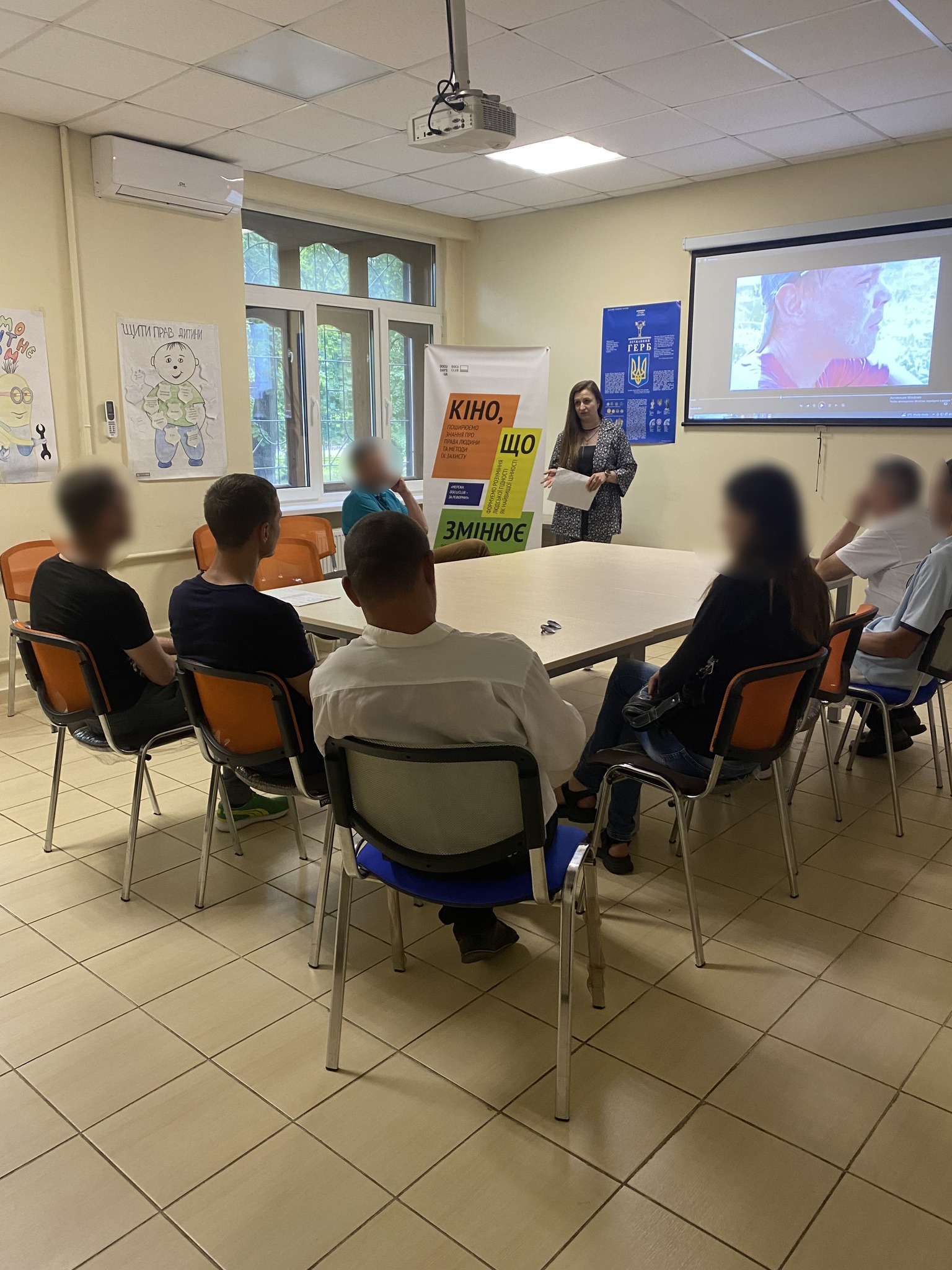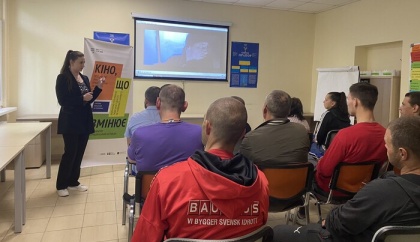
Is it possible to persuade an offender to return to law-abiding life? This question is not rhetorical for people who work with convicts.
Reprinted from Glavkom.
“Extracting” offenders from the criminal environment and bringing them back to society is the task of probation authorities. They supervise convicts and conduct social and educational activities with them. “The task of probation is to try and give a person the chance to reform” Unlike traditional punishment in the form of imprisonment, probation has benefits for the offender, society, and the state as a whole, as 98% of offenders do not commit new crimes while under probation supervision. To achieve these results, probation officers analyze the needs of each client and draw up a custom plan to work with each of them. In essence, such an employee becomes the offender's guide to a lifestyle that is safe both for him or her and the society: probation officer provides information about legal requirements, refers the offender to relevant social services, cooperates with the NGOs and government agencies, and engages volunteers – in short, creates a “support group” for the offender on the way to his or her resocialization. How to reach out to those who have committed a crime? Maria Tyshchuk, deputy head of the Bohun District Department of the Probation Center in Zhytomyr region and moderator of a Docudays UA film club, shares her experience of non-standard approaches to working with offenders. Maria Tyshchuk “One of the biggest problems in working with probation clients is their covertness. In order to ‘pull’ a person out of the criminal environment, we need to establish trust between us, so that the person dares to open up, discuss the reasons for their behavior, and think about how to change their life. We are often forced to repeat some standard things, informing about the law, employment opportunities, and assistance. However, clients who have been in this system for quite some time have heard all this more than once, and they do not expect anything new from us. They passively receive information, but there are almost no tangible changes in their behavior,” says Maria. Therefore, probation officers have to look for more effective ways to establish closer contact with convicts. For the Bohun District Department of the Probation Center, this approach became possible due to human rights documentaries. Back in 2021, Maria Tyshchuk joined the DOCU/CLUB Network of the NGO “Docudays” and registered a Docudays UA film club at her probation unit. For 3 years now, she has been gathering probation clients for screenings and discussions of human rights documentaries. “At that time, my colleague Lina Babych was the only one in our institution who had been already working in this direction. I was very interested to see what was going on in the film club and how it worked. Our clients are people with difficult lives. They are drug addicts, alcoholics, and homeless people. Some of them have accidentally stumbled for the first time without knowing the law. And for others, criminal offense is a permanent pattern of behavior. They have not seen any other model since childhood and believe this is a normal way of life,” says Maria Tyshchuk. “I’ve seen that documentaries encourage people to think about what exactly is going wrong in their lives. And this is the first step to fixing it. Documentary films become the key that helps reveal a person’s inner life.” Discussing documentaries facilitates establishing contact with prisoners Maria Tyshchuk decided to master a new tool for work and started organizing film screenings for probation clients. She had to learn how to keep the audience's attention, overcome their prejudices, and find experts who could share their experience in overcoming problems with probation clients. “I try to hold events for our probationers twice a month, and invite experts who are really more knowledgeable about certain topics than I am. If I can't navigate some types of chemical addiction, I'd rather invite an expert on these issues or a volunteer who used to be addicted and can tell me how he managed to overcome his addiction, give some recommendations, or refer to an institution that provides this kind of medical care,” the moderator shares. Through documentaries, this information is perceived in a completely different way. The DOCU/CLUB Network collection includes many films that tell about lives and problems of convicted people. Among them are Cutting Loose by Scottish directors Finlay Pretsell and Adrian McDowall, Written in Ink by Polish director Martin Rath, and ABC by German director Madli Lääne. Viewers recognize themselves in the films’ characters, start discussing the reasons for their actions, and look for ways to change their lives. According to Maria, documentaries help reveal the criminogenic issues of her clients, such as job search, alcohol consumption, and family problems. “Sometimes, they come up to me after the screening and ask if they can bring their girlfriend to the next film. I have had parents who are registered on the list of an addiction clinic come up to me and ask for permission to bring their son to the next screening. This proves that I have found an ‘entry point’ to their hearts. This is the most valuable thing for me,” admits Maria Tyshchuk. Such an informal approach is much more effective than standard methods of work. During discussions in film clubs, probation clients are not passive listeners, but active participants in conversations that help them comprehend the reasons for their offenses and decide to consciously change their lives. “I invite representatives of the employment center to the events, so that our clients can learn about job opportunities. Discussing films with experts encourages our drug addicted clients to look for ways out of addiction – from receiving substitution therapy [substitution maintenance therapy is a program of medication treatment for people with a range of different disorders due to opioid addiction – ed.] to treatment at rehabilitation clinics. This is also a positive result, meaning that we have ‘reached out’ to the person. Recently, we watched Sickfuckpeople by Yuriy Rechynskyi. Twenty people gathered for the screening, and no one was in a hurry to leave afterwards. They came up to the volunteer, who was a drug addict himself, and asked him how to get out of addiction. Seeing that your work is not in vain is inspirational!,” the moderator shares her results. With the probation center volunteers: Oleksandr Navrotskyi, head of the Zhytomyr branch of the International Anti-Drug Association, and psychologist Oleksandr Kalyuzhnyi Currently, 210 people are registered with the Bohun Probation Department. Behind each sentence are human destinies, and each person needs to be approached differently. Maria Tyshchuk is convinced that it is very important to work proactively, watching films that encourage change and warn against reoffending: “Films about volunteering are very effective, for example, Hottabych and His Team by Serhiy Lysenko. Such films suggest that a person can always find him- or herself in a different activity. For some people, this seems obvious, but for our clients, realization that they can be useful to others is a revelation.” Since the full-scale invasion, a new category of prisoners has appeared in probation centers. As of the beginning of the year, more than 10,000 criminal proceedings have been initiated in Ukraine on the grounds of treason and collaboration. More than a thousand people accused of violations against national security have been sentenced. However, not all of those convicted receive actual prison terms. More than five hundred collaborationists are obliged to undergo a probation program after being sentenced by the court. There are some at the Bohun Probation Department as well. “It's very difficult to work with people who are serving a sentence for a crime against the foundations of national security. These are often older people: the oldest convict at our department is 78 years old. They are adults with an established system of beliefs and values that are difficult to change. We can't force a person to love their country or realize their Ukrainian identity,” Maria admits. But the court's verdict obliges them to at least try to influence such people. The film club moderator believes that documentary films will be a useful addition to working with this audience: “Many of them have never reflected on their views, even after the outbreak of a full-scale war. I want to ‘hook’ them with something, trying to shift their established system of beliefs. I think that educational conversations might not have the necessary effect, so I rely on documentary stories about people who are defending Ukraine, volunteering, and resisting the invaders.”
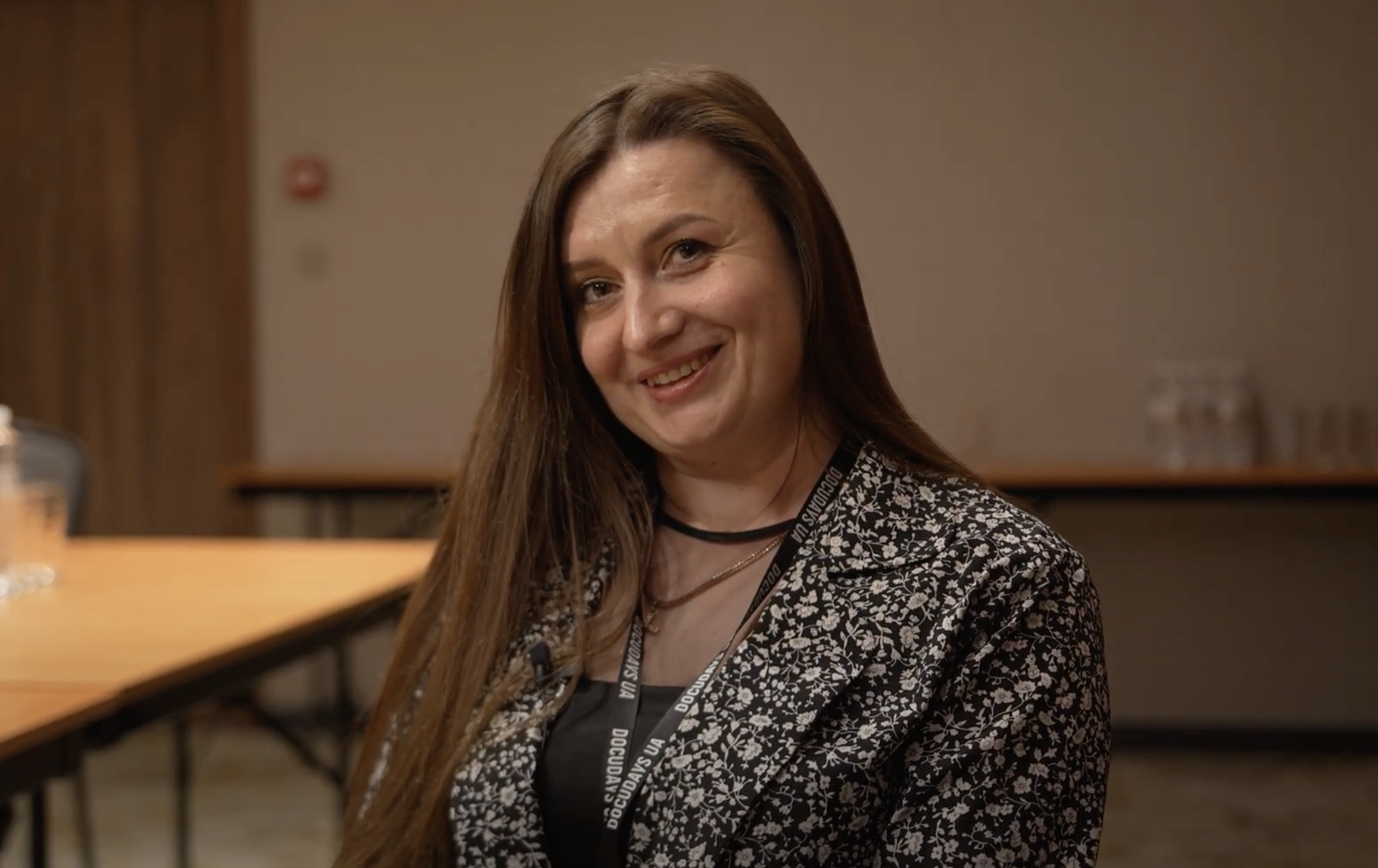
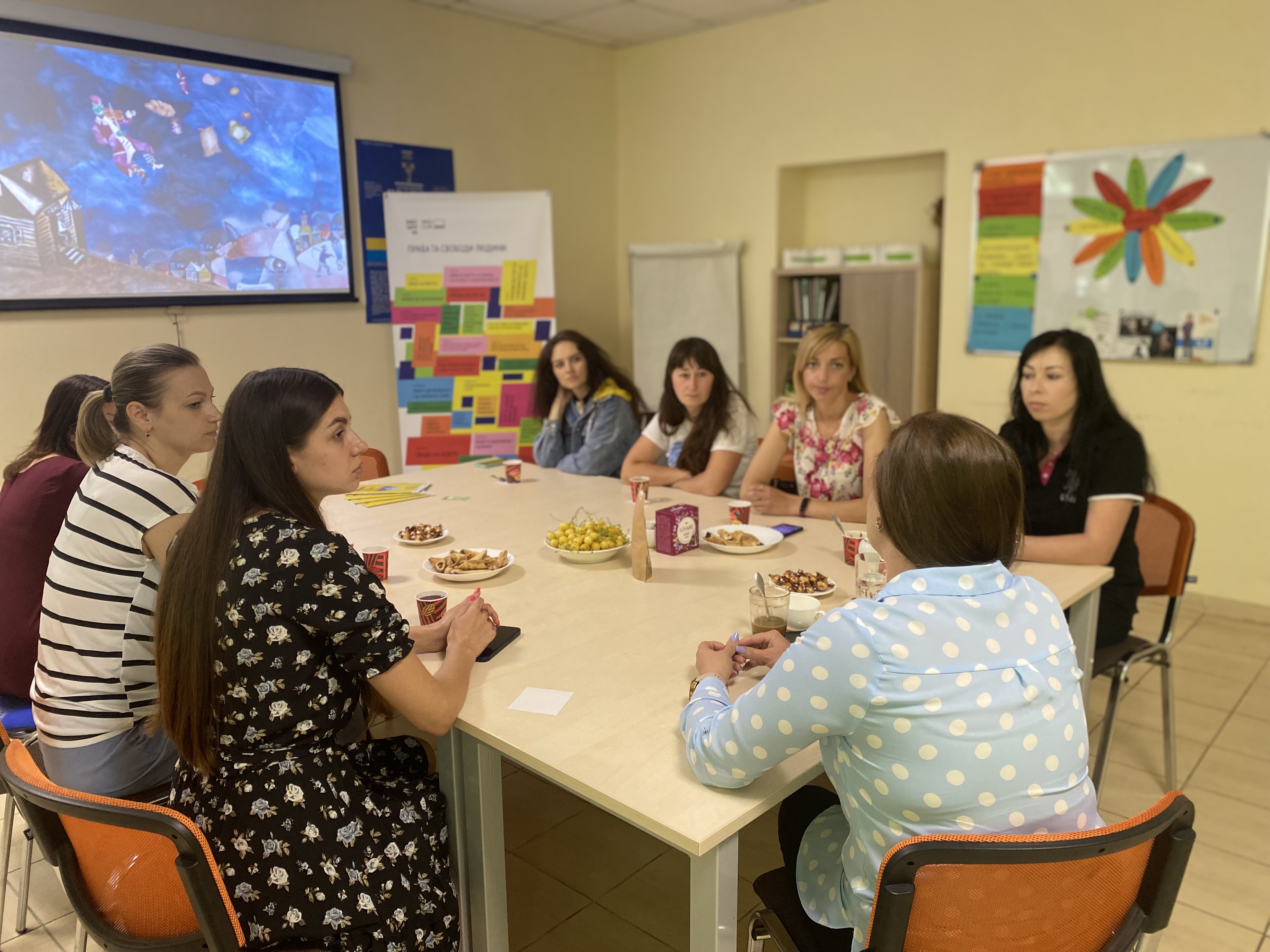
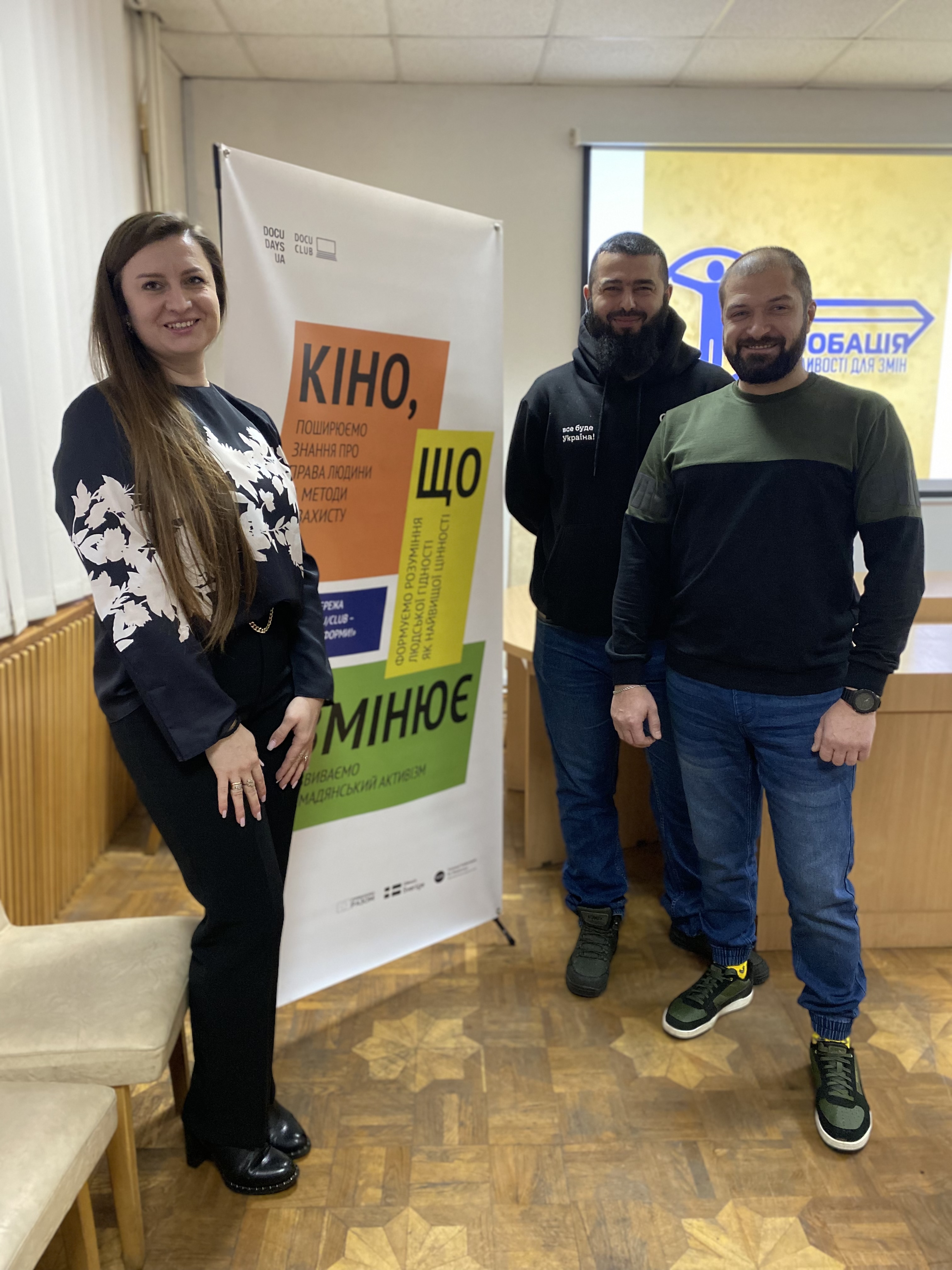
Films help motivate people to change Maria Tyshchuk showed these difficult audience films from “Encyclopedia of Maidan” series by Serhiy Lysenko, as well as the film Unconquered Kherson, made by journalists from the Kherson media platform “Vgoru.” She says that the screenings were tense: “There were 28 people in the audience, and the atmosphere was electrifying. I came to the conclusion that you can only change when you go outside your comfort zone. These people have committed a crime. They need to see and hear the people they harmed with their actions. I'm not saying that positive changes can happen quickly, but they need to hear a different point of view. I want them to see the stories documented in films about the fates of other people who lost their lives, who lost their homes, who lost their loved ones. I believe that they will at least start feeling some doubts regarding their position in life.” It's not easy, but the task of probation is to give people a chance to reform. Unfortunately, not all stories end positively. When a person cannot be influenced and remains a danger to society, Maria and her colleagues apply to the court to cancel the probationary period for the convicted person and send him or her to prison to serve the sentence. “But everyone has a chance to change,” emphasizes Maria Tyshchuk. She adds: “I like to look for this ‘needle in a haystack’: where exactly it all started, what went wrong in this person's life, what prompted the person to commit the crime, does he or she have a chance to improve? There is always a chance – you just need to motivate a person to change, or at least show them a different model of behavior. After all, a person may not even realize that a different life is possible. Apparently, this is my inspiration and my purpose.” Author: Olga Gurgu Photos from the archive of Maria Tyshchuk The development of the DOCU/CLUB Network is funded by the United States Agency for International Development (USAID), the Embassy of Sweden in Ukraine, the National Endowment for Democracy (NED) and the Fondation de France. The opinions, conclusions, or recommendations are those of the authors and compilers of this publication and do not necessarily reflect the views of the governments or charitable organizations of these countries. The authors and compilers are solely responsible for the content of this publication.